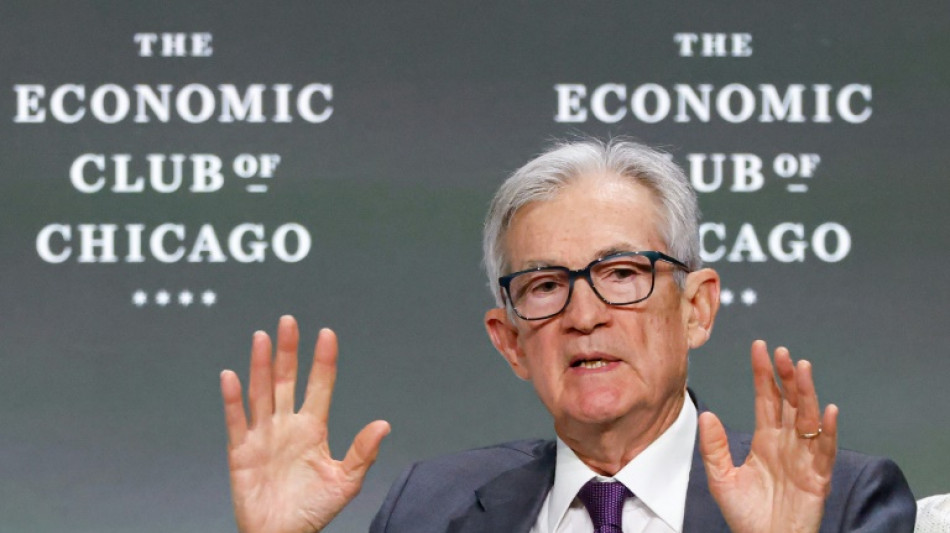
Trump clashes with Fed chief Powell over interest rates

US President Donald Trump blasted Federal Reserve chairman Jerome Powell on Thursday for not lowering interest rates, calling him "always TOO LATE AND WRONG."
"Powell's termination cannot come fast enough," Trump wrote on his Truth Social platform. "Too Late should have lowered Interest Rates, like the ECB, long ago, but he should certainly lower them now."
Central bank chairman Powell warned on Wednesday that Trump's sweeping tariffs on virtually every trade partner could put the Fed in the unenviable position of having to choose between tackling inflation and unemployment.
Trump's stop-start tariff policy has unnerved investors and trading partners, leaving them unsure about his long-term strategy and what it might mean for international trade.
Trump has repeatedly urged Powell to cut interest rates, but the US central bank has adopted a wait-and-see attitude, holding rates steady at 4.25 to 4.5 percent since the start of this year.
The Republican has frequently criticized the Fed chairman, whom he originally nominated during his first term, accusing Powell of playing politics in his role running the independent central bank.
On the campaign trail in August, Trump threatened that independence by suggesting the White House should have a "say" in setting monetary policy.
The US president does not have the authority to fire Federal Reserve governors directly. If he chooses to, Trump could initiate a lengthy process to attempt to unseat Powell by proving there was "cause" to do so.
- Powell pledges to stay -
While presidents have a long history of clashing with Fed chiefs, any move to force Powell to leave office would be unprecedented in modern US political history.
Speaking on April 4, Powell insisted he had no plans to step down as Fed chairman before his term ends next year.
"I fully intend to serve all of my term," he said at an event in Virginia.
At the time, Powell also suggested that the Fed was in no rush to cut its benchmark lending rate from its current elevated level.
Financial markets see a roughly two-thirds chance that policymakers will vote to keep rates unchanged again at the next Fed interest rate meeting in May, according to data from CME Group.
Setting key interest rates is one of the primary levers the Fed exercises in its dual mandate of managing inflation and unemployment.
Lowering interest rates serves to make borrowing cheaper and tends to kickstart the economy by encouraging investment, while raising them -- or keeping them steady at higher rates -- can help cool inflation.
US year-on-year consumer inflation cooled to 2.4 percent in March, bringing it closer to the Fed's long-term two-percent target.
That drop was aided by a 6.3-percent fall in gasoline prices, according to official data.
F.Colin--PS

 London
London

 Manchester
Manchester
 Glasgow
Glasgow
 Dublin
Dublin
 Belfast
Belfast
 Washington
Washington
 Denver
Denver
 Atlanta
Atlanta
 Dallas
Dallas
 Houston Texas
Houston Texas
 New Orleans
New Orleans
 El Paso
El Paso
 Phoenix
Phoenix
 Los Angeles
Los Angeles



